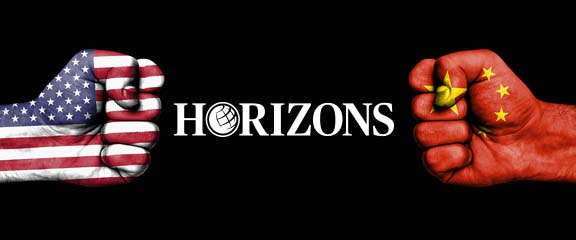In the 1990s, the world of academia in the West hailed the post-cold war era as the beginning of the “third wave” of democratisation. Following the Soviet Union’s collapse, many had proclaimed the demise of “authoritarianism.” Back then, democracy appeared to be “the only game in town.” Much has changed in 30 years: Donald Trump in the United States, Modi in India, Eurocentric and anti-immigrant forces in Europe — it’s the rise of the populists. Is democracy around the world under threat?
The electoral cycle pushes elected democracies to find low-hanging fruits; short-term policy approaches. Elected officials, unsure of completing their tenure, are averse to making tough decisions because of their need to keep voters happy for the next election. And, the ‘itch’ doesn’t let the opposition sit on the bench for more than two years. The dictionary of politics in Pakistan should include the “Dhai-saala” (two-and-half-years) itch. In a country like Pakistan, where the people maintain their loyalty to a political party even if it violates essential democratic norms, political polarisation diminishes accountability.
A key question for democratisation and democratic erosion is how to manage such intense partisan polarisation. Many dissident voices in Pakistan tirelessly advocate “institutional reform,” by which they mean a “specific institution” — the GHQ. We believe in the importance of more profound social, economic and political reforms and the need to redefine and rebuild democratic norms.
Again and again, we find ourselves in the midst of an upsurge of populist movements, led by impatient demagogues, who cannot sit and wait for their turn. In the name of democracy, these populist movements exploit cultural, ethnic, class and even religious diversity to disrupt the government’s functioning, which actually diminishes the quality of democracy they claim to uphold. While we watch the PDM rallies and protests on the screen, the silent majority of Pakistanis are dissatisfied with the political leadership and sceptical about its social and economic progress doctrines.
The root of the word politics, ‘polis,’ or ‘civitas’ applied principally to citizens. Governance of this community was of importance for Plato as well as Aristotle. As we see it today, politics has lost its positive meaning, posing a significant challenge to democratic societies all over the world. The democratic promise, after all, is the promise of the good life, not for one or some but the people as a whole. Alas, the principle of equality that democracy upholds has been dramatically compromised. We see the result in rising income inequalities, poor health, and a dearth of quality education. The silent majority of Pakistan, primarily concerned with making ends meet, want a respectable work environment and a decent remuneration — a society where people matter, not money or lineage. Max Weber describes the political apparatus as the rule of the clique, and the role of the unprincipled political leaders he calls “a political capitalist entrepreneur.”
The Third Way or Die Neue Mitte, promoted by Bill Clinton, Tony Blair, and Gerhard Schroeder, has run out of steam. With all its flaws, we neither reject democracy nor glorify it, glossing over its defects. We need to redefine democracy for our times and our country. It is not sufficient to say that democracy is better than the other forms of government we have had. Instead, we should reframe democracy to obtain better what is good. That starts at the local government level — towns, cities and district levels.
And, for the political parties, the process starts from within. Lineage and blood-line do not make a leader. Political groups that cannot produce new leaders will always lack fresh and innovative ideas. Unfortunately, we find ourselves surrounded by known “brands,” chasing their tails every two years or maybe two-and-a half.

Ibrahim Sajid Malick
Editor, Narratives



